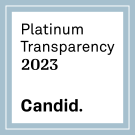HDC opposes I-2066 and I-2117
The Housing Development Consortium of Seattle-King County is firmly committed to energy efficiency and sustainability within the affordable housing ecosystem. Our HDC Board of Directors voted to oppose two initiatives and HDC has established a Climate Defense effort to provide information related to two environmentally critical initiatives impacting the built environment; both slated for the November 2024 Statewide ballot. As a 501c3 nonprofit, HDC can engage with, endorse, or oppose ballot measures (not candidates), and to share information with potential voters both about the content of the ballot measure, and why HDC has taken its position on that measure.
We believe that both initiatives would be antithetical to the building and maintenance of thriving communities that provide stability through equitable sustainability. Both initiatives have been funded by wealthy polluters that are seeking rollbacks in energy policy to prioritize their profits at the cost of our clean air, improved transportation options, climate mitigation efforts and vitally supportive clean energy investments already underway statewide.
Initiative 2066 would strip the process that the legislature has established for large public utilities to develop a transition plan to meet reduced emissions targets. Instead of building a clear path towards decarbonization, in alignment with Washington’s reduced emissions targets, this initiative would require utilities to invest in their capacity for the long-term delivery of natural gas.
Initiative 2066 is in direct opposition to the efforts that our membership has been engaged in through our work with state, local and utility administrators, alongside our community of Affordable Housing participants.
Initiative 2117 would eliminate an important revenue source to mitigate climate change. This could worsen the impacts of climate change, including more frequent severe weather and dangerous air quality that disproportionately impacts people experiencing homelessness, poverty, and disability. By removing the “cap-and-trade” component of the Climate Commitment Act (CCA), polluters would no longer be financially motivated to reduce their carbon emissions, resulting in greater risks of wildfires, extreme weather, and continued climate inequities for historically overburdened communities.
CCA funding collected to date is already supporting improved access to mass transit and major transportation initiatives, facilitating public and private building retrofits, and creating wildfire mitigation strategies, to name just a few. Crucially, at least 35% of revenue from the CCA is directly spent in overburdened communities and 10% to tribes.
HDC is proud of our memberships’ ongoing efforts to provide illustrative demonstration projects through our Exemplary Buildings and Decarbonize Affordable Housing Now programs that support reasonable transitions to sustainable building and retrofitting. Our collaborative efforts are building roadmaps to high-efficiency buildings for greater cost stability and lower emissions.
We enthusiastically support the clean energy vision set forth through negotiated legislative deliberation. These initiatives are misguided rollbacks that would unfairly benefit the wealthy and harm those that are already at the greatest risk.


